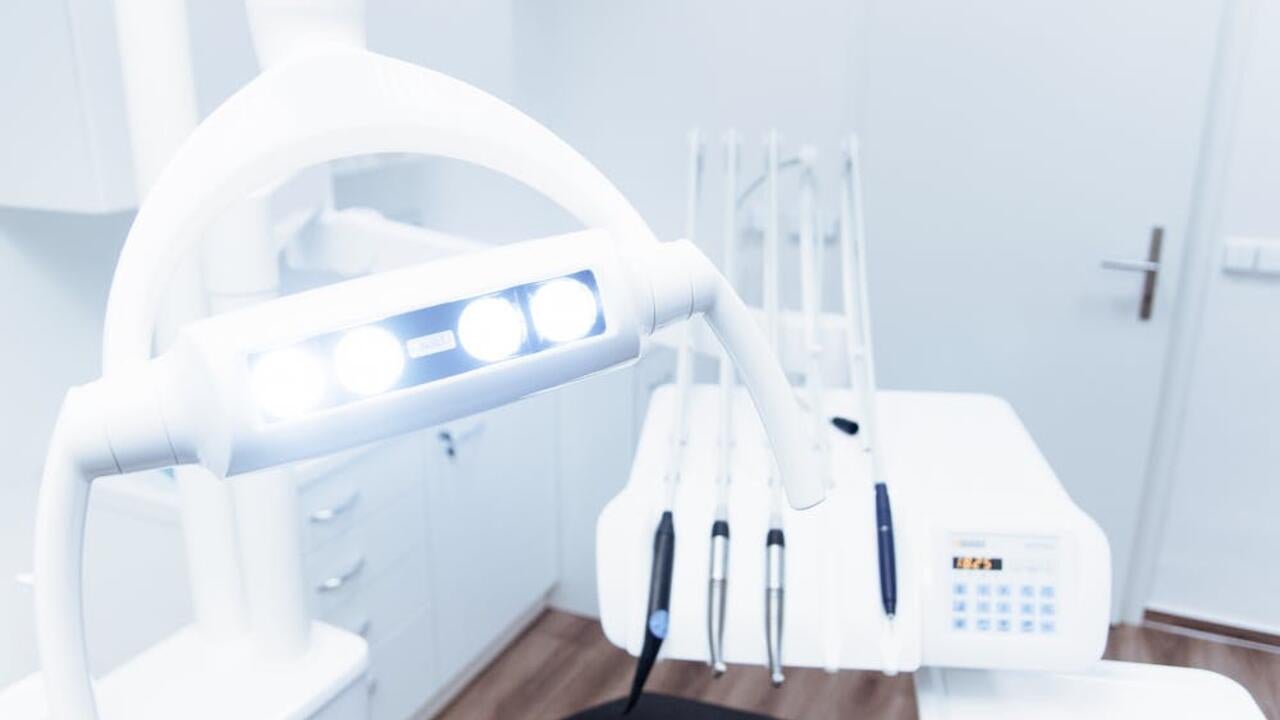
Study finds air filtration reduces the risk of COVID-19 spread during dental visits
Researchers have discovered that air filtration devices in dental offices could significantly reduce potential COVID-19 transmission through aerosols.

Researchers have discovered that air filtration devices in dental offices could significantly reduce potential COVID-19 transmission through aerosols.
By Media RelationsResearchers have discovered that air filtration devices in dental offices could significantly reduce potential COVID-19 transmission through aerosols.
Chao Tan, director of the University of Waterloo's Green Energy and Pollution Control Research Lab, and his team of researchers looked at the effects of air purification on particles produced by a patient during scaling and other types of dental procedures.
Although the researchers have not yet analyzed particle removal in other confined settings such as school classrooms, Tan said their findings may also apply to those types of environments. His team is currently negotiating with a sponsor to test its study results in schools located in the City of Waterloo.
The study, which took place at a Toronto dental clinic, showed that when an air purifier is used airborne particles and droplets, also known as aerosols, are removed from the air at least 6.3 times faster than the average 95 minutes it takes for 0.5 micrometre particles or droplets to return to a background level.
Researchers found that running a high-speed air purifier from the beginning of a dental operation in a closed room without ventilation is the most effective way of reducing airborne particle concentrations.
Tan said technologies that combine gravity settling, air filtration and air circulation are the most effective in cleaning the air in an enclosed dental office.
”For additional protection, all surfaces, such as the dental chair, dental light and countertops, should be cleaned and disinfected after each patient,” said Tan, a mechanical and mechatronics engineering professor.
In dental offices without air purification devices, Waterloo researchers recommend opening windows to promote natural ventilation with fresh air, but acknowledge that sometimes that is not feasible, especially during Canadian winters. In addition, staff should leave the room at the end of a dental procedure and close the door to allow for particles to settle or exit through an open window.
In August 2020, the World Health Organization (WHO) recommended delaying non-essential oral health care amid the COVID-19 pandemic and called for research on aerosol generated during dental procedures.
The Waterloo team’s findings are intended to help develop technologies and protocols for the proper control of particles and splatters generated during dental procedures.
“In the context of the current COVID-19 pandemic, our study’s analysis can assist in developing guidelines for air circulation and filtration, which can significantly reduce the chances of disease transmission,” Tan said.
This study is in pre-publication and can be accessed here.

Read more
Velocity pitch competition winners share exciting startup ideas using artificial intelligence and deep tech, showcasing creativity and entrepreneurial prowess

(Getty Images/Meggj)
Read more
Study examined effect of rising temperatures on California’s crop

Read more
Distinguished Waterloo historian and Holocaust expert helps correct the total death toll on an English Channel Island
The University of Waterloo acknowledges that much of our work takes place on the traditional territory of the Neutral, Anishinaabeg, and Haudenosaunee peoples. Our main campus is situated on the Haldimand Tract, the land granted to the Six Nations that includes six miles on each side of the Grand River. Our active work toward reconciliation takes place across our campuses through research, learning, teaching, and community building, and is co-ordinated within the Office of Indigenous Relations.